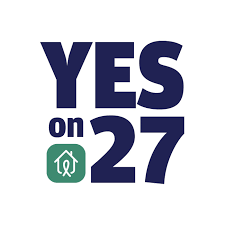Propositions 26 and 27 are the two major gambling initiatives that, if passed, will alter sports gambling for California tribes and residents.
For months, Californians have been bombarded with numerous ads supporting and opposing Propositions 26 and 27. Countless claims have been tossed between the opposing coalitions, making it difficult to understand what the propositions will actually do.
In short, Prop 26 will legalize in-person sports betting, roulette and dice games on tribal grounds and at the four California horse racing tracks. Prop 27 will legalize online and mobile sports gambling in California outside tribal lands. They seem simple enough, but once money becomes involved, everything turns complicated.
Both campaigns have made large, often vague assertions describing how taxes on sports gambling will benefit California to the tune of hundreds of millions. However, difficulties lie in estimating how much profit the state will accumulate with the passing of either proposition.
Proposition 26

According to the “Yes on 26” website, Proposition 26 will generate tens of millions of dollars for the state of California. This claim, however, withholds the fact that the total gains would depend on the proposition’s interpretation and implementation, leading to an “uncertain” sum, as stated by the Legislative Analyst Office or LAO. The Yes on 26 coalition continues to claim that the money earned would increase funding for California public services.
“The millions generated by Prop 26 will be available for public schools, mental health programs, public safety, wildfire prevention, affordable housing, senior services, and other state priorities,” reads the “Yes on 26” website. This claim is also backed by the LAO, though that comes with some caveats. The taxed monies would enter the California Sports Wagering Fund, and about 40% of that would be used toward public schools, while the remaining 60% would go to sports betting and gambling-related costs, as well as other state spending priorities.
Prop 26 supporters also push claims stating that the proposition will help bolster tribal self-sufficiency. However, this claim has been disputed. “It would only impact gaming tribes by giving them more money,” Mary-Beth Moylan, associate dean for academic affairs at the McGeorge School of Law, told KCRA News during an interview in July. “And that may not equal self-sufficiency.”
The Yes on 26 website states that the proposition would help limited and non-gaming tribes by increasing funds distributed through the Revenue Sharing Trust Fund. Though it doesn’t say how much of an increase that would be.
Proposition 27

The biggest claims made by the Prop 27 coalition could create hundreds of millions of dollars to fund mental health and addiction treatments, as well as fight homelessness.
“Under Prop 27, 85% of all tax revenue goes to fund solutions to homelessness, mental health, and addiction,” reads the Yes on 27 website. The LAO does support this claim but, similarly to prop 26, it specifies that revenue could reach hundreds of millions of dollars, but this depends on a variety of factors, including how many people will actually begin betting on sports. The proposition also states that 15% of all tax revenue would go to disadvantaged non-gaming tribes. This is in contrast to Prop 26, which does not specify how much of a cut would go to non-gambling tribes.
Opponents of Prop 27 have specifically focused on the out-of-state gambling companies funding the campaign, claiming that 90% of the profits would leave California. It is true that out-of-state gambling companies would benefit from online sports betting, but it doesn’t necessarily mean they would reap most of the profit. According to CalMatters, these companies would still need to spend money in California.
“Companies will need to make a deal with a tribe in order to operate legally, and that deal could include some kind of payment or revenue sharing,” reporter Grace Gedye wrote for CalMatters. “Gaming companies may also need to pay employees or contractors in California to get their business going here.”
These out-of-state companies may get some of the profit, but it’s impossible to say how much they would actually make.
Both the Democratic and Republican parties of California oppose Proposition 27, with state Republicans also opposing Proposition 26 while Democrats obtained from taking a side.
Should both propositions pass, the California Supreme Court would decide if there is a conflict of interest between the two. Assuming the courts do find a conflict of interest, the proposition with the highest affirmative vote will pass. On the off chance they don’t find a conflict of interest, then both propositions would go into effect.

